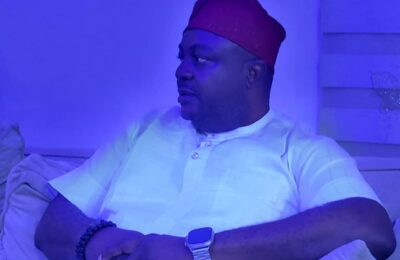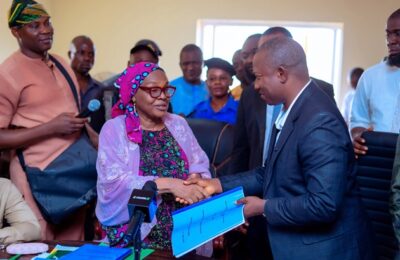By Musa Bakare.
Nigeria’s political culture has long been defined by paradoxes, none more striking than the spectacle of former leaders transforming into the fiercest critics of their successors.
Men and women who once wielded immense power, presiding over the nation’s affairs with sweeping authority, often re-emerge after leaving office as outspoken voices of dissent. Yet their criticisms are often colored by contradictions, selective memory, and unacknowledged culpability.
President Bola Ahmed Tinubu, however, has chosen a distinct path, silence. Unlike his predecessors who traded words with their critics, President Tinubu has mastered the art of ignoring political noise, focusing instead on reforms, continuity, and governance.
As Nigeria marches toward the 2027 elections, this strategy deserves careful reflection.
No former Nigerian leader for example epitomizes the role of critic more than General Obasanjo. Twice a Head of State, first as a military ruler in the 1970s and later as a civilian president from 1999 to 2007. Former President Obasanjo has never shied away from condemning his successors. His letters, public statements, and media interventions have become a hallmark of post office activism. Yet Nigerians vividly recall that under his rule, issues like third-term maneuvering, privatization controversies, and unresolved insecurity were rife.
This example underscore a recurring contradiction, former leaders, burdened with their own unflattering legacies, often seek redemption by criticizing those who succeed them.
Having left office, ex leaders become obsessed with how history will judge them. Criticism of the incumbent becomes a way to polish their image and shift blame. Nigerian politics thrives on patronage and networks.
Former leaders use public criticism to reassert influence, remind protégés of their presence, or tilt political balances in favor of their allies.
Many of them lamenting corruption, insecurity, or unemployment problems that thrived under their regimes. By pointing fingers, they attempt to obscure their own complicity while appealing to public frustration.
No Nigerian former leader wants to fade into obscurity. Staying active in public discourse ensures they remain part of Nigeria’s political conversation.
Unlike many past presidents who sparred with their critics, President Tinubu has deliberately chosen not to dignify such attacks with responses. His silence is not weakness; it is strategy.
President Tinubu understands three truths, time proves reforms. His focus is on the structural transformation of Nigeria’s economy and governance. That leaders are remembered not for their rebuttals but for their results.
By ignoring former leaders’ barbs, President Tinubu shields his administration from distraction and keeps the narrative centered on his Renewed Hope Agenda, fuel subsidy removal, foreign exchange reforms, industrial revival, infrastructure expansion, and grassroots empowerment.
As Nigeria approaches the 2027 general elections, opposition figures and former leaders will intensify their rhetoric. Their criticisms are not merely about governance; they are about shaping narratives, destabilizing confidence in President Tinubu’s leadership, and positioning themselves or their allies for power.
President Tinubu’s choice to focus on delivery rather than debate will ultimately prove decisive. In politics, silence can be a weapon, and in governance, results are the only enduring defense.
The cycle of ex office holders turning into critics will persist until accountability mechanisms in Nigeria demand responsibility both during and after tenure. Nigerians must learn to separate genuine statesmanship from opportunistic rhetoric. True leadership is not measured by fiery statements after office, but by service delivered while in office.
President Tinubu’s refusal to engage in political squabbles ahead of 2027 election represents a new maturity in Nigerian politics. He understands that the best response to criticism is performance. When his reforms succeeds in stabilizing Nigeria, history not rhetoric will be his loudest defense.
– Musa Asiru Bakare, a member of the APC and a political analyst, writes from Lokoja, Kogi State.




